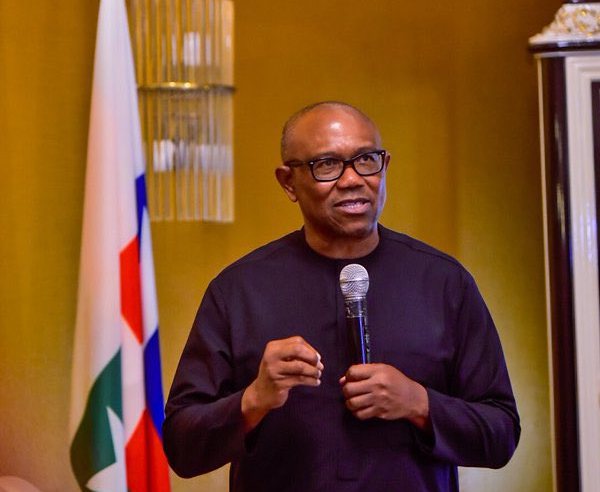Chinedum Treasure
The 2023 Presidential Candidate of the Labour Party, Mr Peter Obi, has called on African nations to urgently invest in their human capital.
He also urged them to scale up productivity as a strategy to mitigate impact of potential trade disruptions under a second Trump presidency in the United States.
Obi gave the charge while speaking at the Plenary Session of the Commonwealth Enterprise and Investment Council (CWEIC) Trade and Investment Summit 2025 in London.
Addressing the topic “Africa’s Role in the New Global Economy,” Obi said Africa’s pathway to relevance and resilience in the evolving global economy lies in harnessing its youthful population and vast resources.
Reflecting on recent global economic shifts, Obi noted that interventions by former U.S. President Donald Trump had already disrupted long-standing assumptions of global trade.

He said many nations were now adopting protective measures to safeguard their economies.
He however lamented that African countries have largely failed to respond proactively.
He said, “Despite its vast opportunities, Africa’s share of global trade remains at a paltry 2-3%, with its GDP share at about 3%,” Obi observed, citing data from the World Trade Organization.
“Africa’s GDP per capita stands at just $1,900, compared to about $9,000 in Asia.
“This stagnation persists even though Africa is the second-largest and most populous continent, with about 1.5 billion people and the world’s largest concentration of working-age population.”
Highlighting Africa’s immense potential, Obi said the continent boasts abundant natural resources, including nearly a billion hectares of uncultivated arable land and over 30% of the world’s mineral reserves.
“Yet, these assets remain underutilised.
“Africa holds over 60% of the world’s arable land. Our food and agriculture market, currently valued at $280 billion annually, is projected to exceed $1 trillion by 2030.
“With agriculture at the core of our economic transformation, Africa can emerge as a global agricultural powerhouse and a net exporter of food,” he added.
Former Anambra state governor further stressed that realising this potential hinges on leadership that prioritises productivity and value creation.
He called for a transformative shift in governance across the continent, one that embraces innovative education, healthcare investment, and poverty reduction.
“What is missing is leadership that can reorder priorities and scale up productivity so that African countries can move into higher levels of value creation.
“We have seen promising signs in better-governed African countries. The challenge remains scaling up and sustaining this across the region.”
Obi urged African leaders to learn from Asia’s developmental state model, which prioritised human capital and productivity over mere institutional imports from Western economies.
He advocated for bold, visionary leadership to steer Africa toward economic self-reliance and global competitiveness.
“This is a junction for transformative change. Africa must rebuild its economies through leadership that focuses on rapid upgrades in productive capacities.
He specifically identified education and healthcare as sectors that would assist to lift millions out of poverty and seize the opportunities of the new global economy.
The event, which attracted global policymakers, investors and thought leaders, underscored Africa’s pivotal role in shaping the future of global trade amid shifting geopolitical dynamics.






